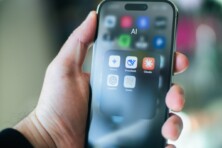Tech giants Google and Apple, which are competitors in the context of the market position, have announced a joint effort against unwanted tracking.
Source: Pixabay.com
In a joint statement published last Tuesday, May 2, the companies noted that tracking devices help users find personal items, for example, keys, wallets, luggage, and much more with the help of crowdsourcing search networks, but at the same time, this technology can be used contrary to the original purpose for covert surveillance of individual faces.
The tech giants have unveiled an industry specification to curb the misuse of Bluetooth location-tracking devices for unwanted monitoring. The specification will make these devices compatible with the detection of unauthorized tracking and alerts on iOS and Android platforms. The proposal was submitted to the Internet Technology Development Working Group (IETF), an industry standards development organization.
The tech giants also reported that their initiative has received support from other companies, including Samsung, eufy Security, and Pebblebee. The offer also contains best practices for manufacturers who want to integrate unwanted tracking prevention capabilities into their products.
Ron Huang, Apple’s vice president of sensor data and connectivity, said that for the first time in the industry, the company has created AirTag and Find My network with a set of proactive features to eliminate the risk of covert monitoring of users’ vital activity and continues to improve these solutions to ensure that the technology is used exclusively within the originally stated purpose.
The new specification is based on AirTag protection and, with the help of Google, leads to a critical step in the fight against unwanted advertising on iOS and Android devices.
Dave Burke, Google’s vice president of Android development, says that Bluetooth trackers offer users many advantages, but useful features have a downside, a negative side, manifested in the fact that such devices have the potential for unwanted tracking, which requires industry-wide measures to counteract.
He also noted that Android adheres to the principle of consumer protection and will continue to create means to counter security attacks, cooperating with other companies in solving this issue. The main goal in this context is to prevent the practice of misuse of Bluetooth tracking devices.
Last year, Apple updated AirTags after reports surfaced that some aspects of the functioning of this tracker contributed to the commission of crimes, including pursuit and car theft. The company has updated its software so that during setup a message appears stating that tracking people is a crime and law enforcement agencies can request user data.
Apple has also developed an Accurate Search function, with which iPhone owners can find out about the presence of unknown security tags nearby. This feature is important because criminals can intentionally leave compact devices in the bags or pockets of victims.
As we have reported earlier, Apple Releases First Rapid Security Fixes for iPhones, iPads and Macs.









